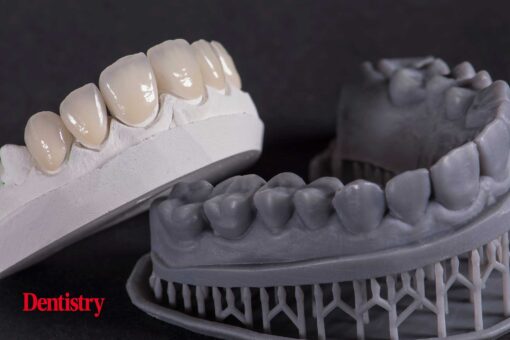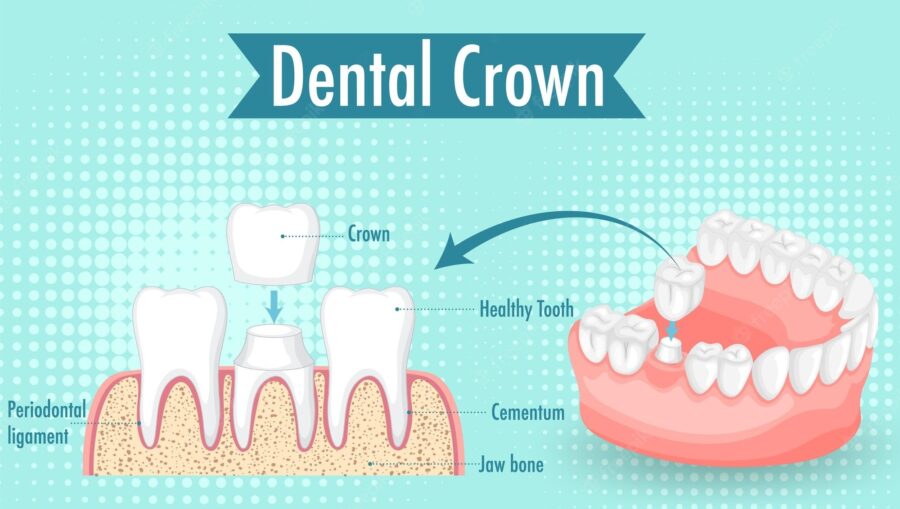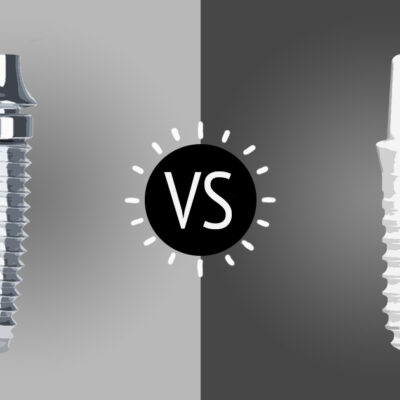The word “crown” might bring to mind images of old kings and queens, but modern crowns are actually a type of dental restoration used when the tip of a tooth is broken, or its surface is eroded, stained, or cracked. Essentially, a crown is a cap that helps restore your tooth and prevent further damage. With so many available options for crowns and other dental restorations these days, it’s easy to find the one that’s best for you. Here’s an overview of some common types of crowns and what they each have to offer.
There are various types of dental crowns available, and the most advanced crowns will depend on the specific needs of each patient and the recommendation of their dentist.
What to know before you get a Dental Crown?
It’s important to note that each type of crown has its own set of advantages and disadvantages. Before your dentist recommends one for you, it’s helpful to know what those might be. Be sure to discuss the options with your dentist to find out which type is best for your situation. It’s also important to know that a crown is not the same as a filling. Crowns are more invasive and take more time to place than a filling.

For example, a root canal filling crown is often used as a procedure to repair a broken tooth that is infected. Many people are nervous about having it placed, but rest assured that it’s a relatively painless procedure. That said, there are a few things you can do to make the experience a little less uncomfortable. Make sure to take a painkiller before visiting the dentist, and schedule your appointment for a time when you don’t have to rush off to work or other obligations.
Metal Crowns | Advanced dentistry
Metal crowns are one of the most common types used today. They are made of a ceramic-like substance called porcelain fused with metal (PFM). This ceramic-like material is mixed with precious metals such as gold and platinum to create a strong, yet natural-looking restoration.


Because they are made from ceramic, they are very durable, yet they’re very tooth-coloured, so they blend in well with your natural teeth. A major benefit of they is that they’re relatively cheap to place. That’s because they’re made from porcelain and a small amount of gold rather than porcelain and a large amount of gold like porcelain dental crowns.
Ceramic Crowns | Advanced dentistry
Ceramic crowns, also known as porcelain dental crowns, are another common type due to their many advantages. On the downside, they tend to be more expensive than metal ones, but for many people, their benefits make them worth the extra cost. They are often selected for their natural-looking appearance. They’re designed to look as much like your other teeth as possible, so they’re less noticeable.
These crowns are made of high-quality ceramic material that closely matches the color of natural teeth. They are a popular choice for front teeth due to their lifelike appearance.
In some cases, ceramic crowns are designed to mimic the shape of your tooth, so no one would ever know that you have a crown. They also tend to be far more durable than natural teeth, so they’re able to withstand more abuse. That makes them suitable for teeth that are at a high risk of fracture, such as teeth in the back of the mouth.
Porcelain-fused-to-metal crowns
Porcelain-fused-to-metal crowns are a combination of the best aspects of both metal and ceramic crowns. They consist of a thin layer of ceramic fused to a strong metal core, with the resulting material being perfect for dental restorations. PFM look natural, have a high level of durability, and can be very affordable due to their low cost of manufacture. They are quickly becoming the preferred choice of dental professionals and patients alike.
SAPTeeth Advanced Dental Crowns
The best part of SAPTeeth is that they are customized to perfectly re-create your smile. And, that too in a matter of a few hours. They are low maintenance and do all things which traditional metal, ceramic, and zirconia couldn’t. The most advanced material for the crowns is called SAPTeeth. They exert less stress on the bone, due to their shock-absorbing properties.
CAD/CAM (computer-aided design and computer-aided manufacturing) crowns are designed and manufactured using advanced digital technology. This allows for a faster, more precise, and more efficient process, with minimal tooth preparation required.
Root canal filling with advanced crowns
They are a type of dental restoration that is used to repair a tooth that has become infected. It is usually a last resort for treating tooth decay but can be a good option for saving a tooth that’s beyond repair. The first step in treating an infected tooth is to remove the infected pulp, or soft tissue, from inside the tooth. Next, the void left from the removed pulp is filled with a material, usually a clear resin. Finally, a crown is placed over the filling to protect the tooth from additional damage. Root canal filling crowns are more time-consuming and costly than a filling. They are worth their extra expense, as they are the best way to save a tooth that’s beyond repair.
Dental Implant with Crown
All-on-4 dental implants: All-on-4 is a type of dental implant treatment that uses four dental implants to support a full arch of replacement teeth. The crowns used in All-on-4 are custom-made to fit each patient’s unique needs and provide a natural-looking, functional restoration.
Zirconia crowns are made of a strong and durable material that is highly resistant to wear and tear. They are also biocompatible, making them a good choice for people with allergies or sensitivities to other materials.
Summary
Crowns are dental restorations that are placed over a tooth to restore its shape and function or to improve its appearance. They are often used when a tooth is decayed or broken, or when a tooth is impacted or un-erupted. They come in many different materials, and each has its own set of advantages and disadvantages. Whether you’re getting your teeth whitened or getting a crown placed, you can trust the expert dentists at Royal Dental Clinics. Ultimately, the best type of crown for each patient will depend on their specific needs, budget, and goals. A dentist can help to determine the most appropriate type of crown for each patient and guide them through the process of choosing and receiving a dental crown.






